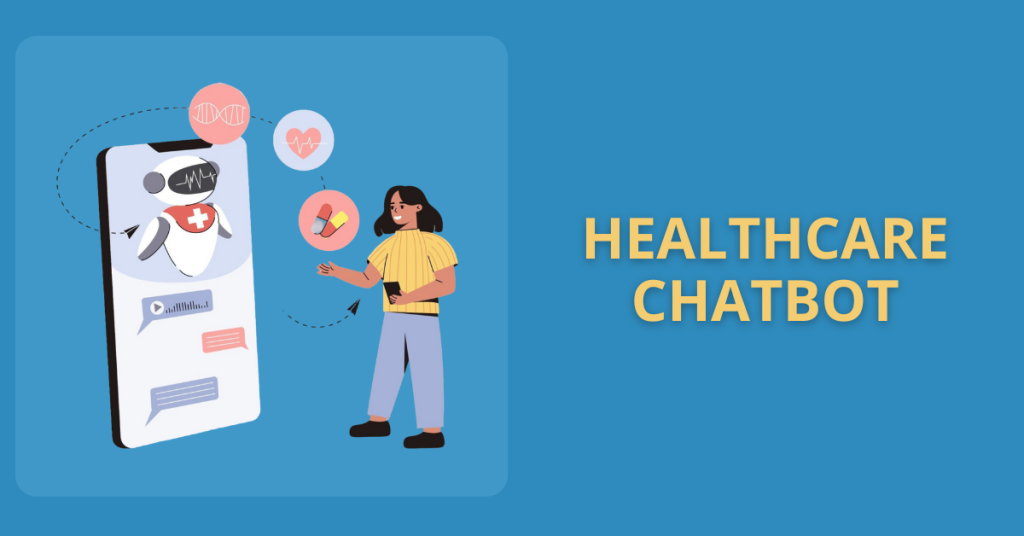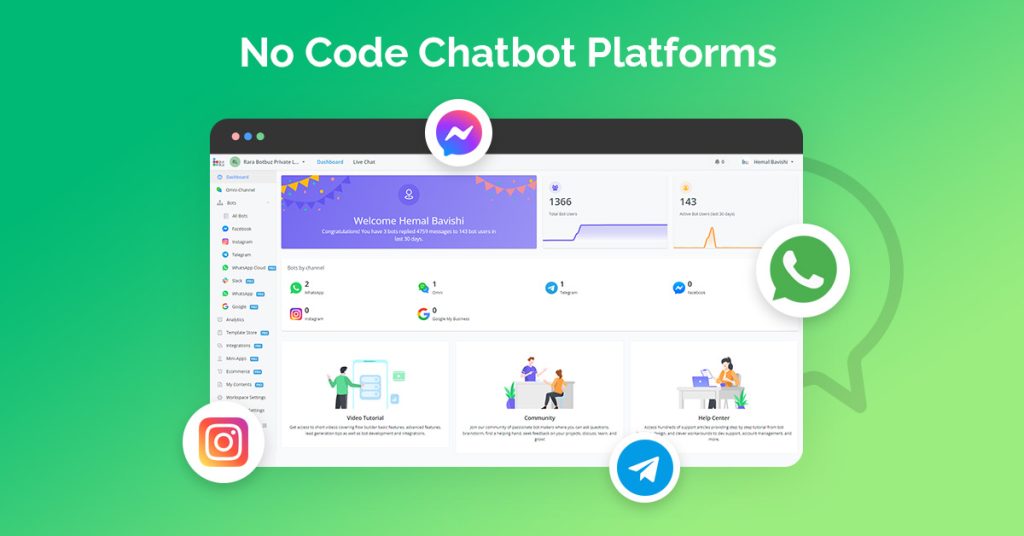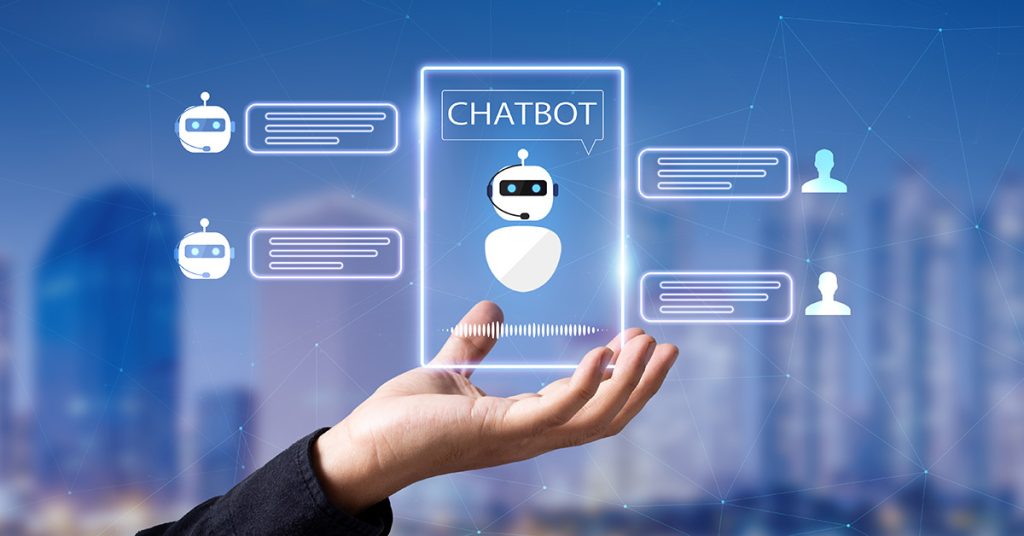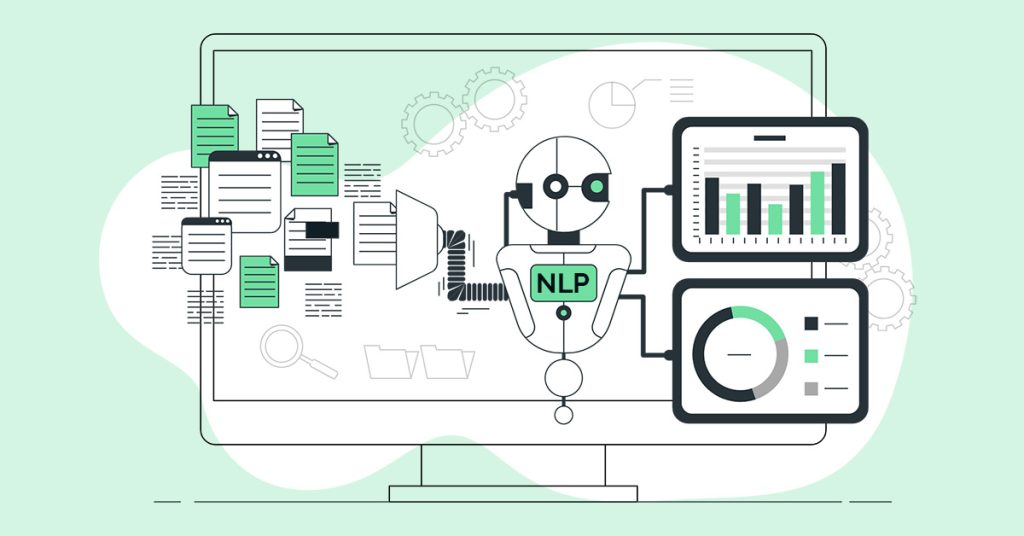- The rise of healthcare chatbots :
- Importance of automated care in the medical sector :
- What are healthcare chatbots ?
- Evolution of chatbot in healthcare industry :
- Benefits of chatbtos in healthcare industry :
- Healthcare chatbots use cases :
- Healthcare chatbots : shaping the future of medical care :
- Using Botbuz Chatbot in healthcare :
The rise of healthcare chatbots :
The healthcare sector is undergoing a significant transformation. One of the driving forces behind this change is the rise of healthcare chatbots. These AI-powered virtual assistants are transforming the way patients interact with the medical system. Thus, offering automated care that is both convenient & efficient.
Healthcare chatbots have emerged as a powerful tool for improving patient engagement. It streamlines healthcare processes. They are becoming increasingly sophisticated, utilizing advanced natural language processing (NLP). It helps to understand patient queries and provide informative responses.
This rise in chatbot adoption can be attributed to several factors, including :
Growing demand for 24/7 access to healthcare information : Patients today expect immediate answers to their health questions. Chatbots can provide this access around the clock.
The need to reduce administrative burden : Chatbots can handle routine tasks such as appointment scheduling and prescription refills. Thus, freeing up healthcare staff to focus on more complex patient needs.
The increasing adoption of telehealth : Chatbots can seamlessly integrate with telehealth platforms. It offers patients a comprehensive & convenient healthcare experience.
Importance of Automated Care in the Medical Sector :
The integration of automated care through healthcare chatbots offers several advantages for the medical sector, including :
Improved patient experience : Chatbots can provide patients with a more convenient and personalized healthcare experience. It allows them to access information and complete tasks on their own time.
Increased efficiency : Chatbots can automate administrative tasks. Thus, freeing up healthcare staff to focus on providing direct patient care.
Enhanced cost-effectiveness : It automates routine tasks and reduces the need for human interaction. Thus, chatbots can help to reduce healthcare costs.
Improved population health management : Chatbots can remind patients about preventive screenings, medication adherence and healthy lifestyle choices.
What are Healthcare Chatbots ?
Healthcare chatbots are AI-powered virtual assistants specifically designed for the medical field. They offer a convenient and interactive way for patients to access information. They manage their health & interact with the healthcare system.
At their core, healthcare chatbots are computer programs that simulate conversation with users. They utilize natural language processing (NLP) to understand user queries. It also helps them to respond with relevant information or complete tasks. There are two main functionalities of healthcare chatbots :
Informational : These chatbots act as virtual health guides. It provides patients with reliable health information, answering basic medical questions. Thus, directing them to appropriate resources.
Transactional : These chatbots handle tasks typically requiring interaction with a healthcare provider or staff. This might include scheduling appointments, refilling prescriptions & managing patient portals. It even offers basic triage for minor health concerns.
Evolution of chatbot in healthcare industry :
The concept of healthcare chatbots emerged in the early 2010s. It is with basic programs offering limited functionalities. However, advancements in AI and NLP have fueled their rapid evolution. Today’s chatbots are :
More Sophisticated : They can understand complex questions and respond with nuanced answers.
Personalized : Chatbots can integrate with patient records. Thus, tailoring their responses to individual medical histories.
Multi-lingual : They can cater to diverse populations by offering support in multiple languages.
Benefits Of Chatbots In Healthcare Industry :
Healthcare chatbots offer a range of significant benefits for the medical industry like,
- Round-the-Clock Availability :
This is a major advantage. Unlike human staff, chatbots are available 24/7. It answers patient questions, addresses concerns & provides basic healthcare guidance. This allows patients to get the information they need whenever it’s convenient. Thus, improving accessibility and overall satisfaction.
- Immediately Delivers Critical Information :
Chatbots can be programmed to provide instant access to crucial healthcare information. Patients can get answers to general health questions & symptom explanations. It can also provide basic health advice. Thus, eliminating the waiting on hold or scheduling appointments. This empowers patients to take charge of their health and make informed decisions.
- Minimizes Overhead Costs :
Healthcare chatbots can significantly reduce administrative costs. It automates routine tasks such as appointment scheduling and prescription refills. This frees up valuable time for medical staff to focus on providing direct patient care. Thus, leading to improved efficiency and cost savings.
- Forms a Connection with Patients (to a certain extent)
Chatbots can’t replace human connection entirely. They can foster a sense of connection with patients. It offers a friendly and accessible interface for communication. They can provide initial support, address basic needs. They can even offer appointment reminders. This all contributes to a more positive patient experience.
It’s important to remember that chatbots are most effective when used strategically. They shouldn’t replace human interaction for complex medical issues. But rather act as a valuable supplement to traditional healthcare delivery.
Healthcare Chatbot Use Cases :
Streamlining Appointment Scheduling and Management :
Healthcare chatbots can revolutionize appointment scheduling. It allows patients to book appointments, receive confirmation messages. It can even reschedule appointments directly through the chat interface. This reduces wait times on phone lines. Thus, provides patients with more control over their healthcare experience.
Facilitating Initial Symptom Assessment :
Chatbots can act as a preliminary health screening tool. By asking patients questions about their symptoms, chatbots offer basic information about possible causes. It also guides them towards self-care options or recommends a doctor visit for further evaluation.
Delivering Personalized Health Insights Based on Symptoms :
Taking the symptom assessment a step further. Some advanced chatbots can integrate with medical knowledge bases. It provides patients with personalized insights based on their reported symptoms. This might include relevant articles, recommended self-care measures, or educational resources tailored to their specific situation.
Empowering Patients with Personalized Health Information :
Chatbot connects with electronic health records (EHRs). It can offer patients secure access to their personal health information. This could include medication lists, immunization records & upcoming appointment details. This empowers patients to be active participants in their own healthcare journey.
Supporting Mental Health and Well-being :
Chatbots can play a supportive role in mental health. It provides users with access to self-help resources, coping mechanisms & information about mental health conditions. They can also connect users with mental health professionals or crisis hotlines when needed.
Simplifying Insurance and Claims Management :
Chatbots can assist patients with navigating the complexities of health insurance. It answers questions about coverage, claims processing, and benefits. This can streamline the process for patients seeking information or clarification about their healthcare plans.
Healthcare Chatbots : Shaping the Future of Medical Care
The rise of healthcare chatbots represents a significant leap forward in the medical sector. As technology continues to evolve, we can expect to see even more advancements in this field. Let’s delve into some exciting possibilities :
Advancements in AI and NLP : The evolution of Artificial Intelligence & Natural Language Processing will significantly enhance the capabilities of healthcare chatbots.
Deeper Understanding : Chatbots will move beyond simple keyword recognition. It helps to grasp the nuances of human language and user intent. This will enable them to provide more comprehensive & accurate responses to complex medical queries.
Personalized Interactions : AI advancements will allow chatbots to personalize interactions. It is based on individual medical history, demographics & communication style. This will create a more engaging and empathetic user experience.
Enhanced Emotional Intelligence : Chatbots may even incorporate emotional intelligence. Thus, allowing them to recognize & respond to a user’s emotional state during health discussions. This could be crucial for providing support during times of stress or anxiety related to health concerns.
Integration with Emerging Technologies :
Healthcare chatbots will seamlessly integrate with emerging technologies, further transforming the medical landscape :
Telehealth Platforms : Chatbots will become an even more essential component of telehealth platforms. It offers real-time support and symptom assessment during virtual consultations.
Wearable Devices : Chatbots can connect with wearable devices to collect and analyze health data. Thus, providing patients with personalized insights & promoting preventative care.
Big Data and Analytics : By leveraging big data & analytics, chatbots can identify trends & patterns in patient data. Thus, potentially predicting health risks and recommending preventive measures.
Potential Impact on Healthcare Delivery and Patient Outcomes :
The widespread adoption of healthcare chatbots has the potential to revolutionize healthcare delivery. Thus, improving patient outcomes in several ways :
Improved Accessibility : Chatbots can bridge the gap in healthcare access. It is particularly in remote areas or for patients with limited mobility. They can provide 24/7 support & information, regardless of location.
Enhanced Patient Engagement : Chatbots can empower patients to take a more active role in their health. Thus, providing them with readily available information and self-management tools.
Streamlined Care Coordination : Chatbots can facilitate communication between patients, doctors, and other healthcare providers. Thus, promoting better care coordination and improved continuity of care.
Cost Reduction : Chatbots can optimize administrative tasks and reduce healthcare costs. It automates appointment scheduling, prescription refills & basic health information retrieval.
Preventive Care Promotion : It provides constant reminders & educational resources. Thus, chatbots can encourage preventative care measures & early detection of potential health problems.
Using Botbuz Chatbot in Healthcare :
Potential Applications of Botbuz Chatbot in Healthcare
Patient Intake and Triage : Botbuz could be used to collect basic patient information & symptoms upon arrival at a clinic. This streamlines the intake process. It also allows medical staff to focus on more complex patient needs.
Pre-operative Education : Botbuz could deliver personalized pre-operative instructions to patients. It reduces the need for physical handouts. Thus, ensuring all patients receive the same critical information.
Post-operative Care Support : Botbuz could send automated reminders to patients about medication schedules, wound care instructions & follow-up appointments. Thus, promoting adherence and improving recovery outcomes.
Chronic Disease Management : Botbuz could support patients with chronic conditions. It provides medication reminders, symptom tracking tools, and educational resources. Thus, it helps them to manage their health effectively.
Mental Health Support : Botbuz could offer anonymous mental health screenings. It provides access to self-help resources & connects users with mental health professionals when needed.
Conclusion :
Healthcare chatbots are poised to play a pivotal role in the future of medicine. AI & technology is continuing to evolve. So, we can expect chatbots to become even more sophisticated, ultimately leading to a more :
- Accessible healthcare system that caters to a wider population.
- Efficient healthcare delivery with optimized workflows.
- Patient-centered healthcare model that empowers individuals.
The future of automated care in the medical sector is bright. By embracing healthcare chatbots & integrating them strategically, we can work towards a future where everyone has access to the information, support & care they need to live healthier lives.




